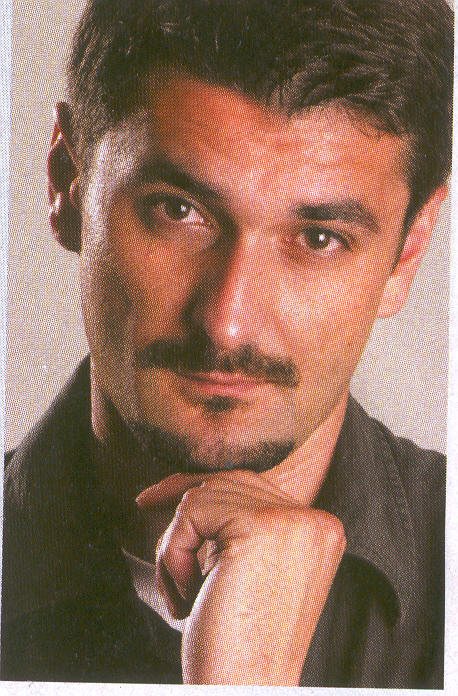 |
Karadžic's arrest as a condition for the survival of his RS
by Emir Suljagic

The first president of RS, charged with genocide and war crimes, has acquired mythical dimensions ever since in mid July 1996 he retired from public life under Slobodan Milošević's pressure. At this point his arrest is the only thing that allegedly stands between Bosnia-Herzegovina and the Partnership for Peace. The problem, however, lies not in Radovan Karadžić or the Partnership for Peace, but in the court at The Hague.
Although his avoidance of arrest is undoubtedly the greatest problem of Bosnian-Herzegovinian society, the fact remains that during the post-war period the arrest of alleged war criminals was not treated as a sine qua non for progress on other fronts. Bosnia-Herzegovina thus became a member of the Council of Europe, while the international community remained on friendly terms with some of Karadžić’s closest wartime collaborators. The UN police mission has meanwhile ensured the survival of a police and security apparatus under his effective control, while the black market economy has remained under the control of a small circle with him at its centre. If as Paddy Ashdown maintains Karadžić is a cancer [crab] destroying this society, then one of its claws is Dragan Kalinić, president of the RS National Assembly, while Dragan Čavić, RS president, is another. Who is responsible for these people's continued legitimacy? At the time when Radovan Karadžić withdrew from public life, he was already charged with genocide; but neither Richard Holbrooke nor Karl Bildt (high representative at the time) found anything wrong with negotiating with him terms of retirement of a kind that would prevent him from being punished.
Yet it seems that this year things are beginning to change. Thus Jaap de Hoop Sheffer, the NATO general secretary, gave the Bosnian government an absurdly short yet urgent period of five weeks to arrest Radovan Karadžić. The timescale, intended to illustrate the importance of the problem, in fact revealed a basic paradox: the Bosnian government, which has no proper police or intelligence apparatus, is supposed to close a chapter by solving a problem that the international community itself created but that it subsequently found itself unable to deal with.
The difference in regard to earlier years is that the Hague tribunal has outlived its political usefulness, and if it is not wound up by the end of this year will again become a problem, just as it was a problem in the early years of its existence. Unless Radovan Karadžić and Ratko Mladić are arrested (but what about the thirteen other Bosnian Serbs on Tribunal arrest warrants?), the Tribunal will not be able to end its work in the envisaged period. This means that it will not be able to halt its investigations as announced.
Another change in relation to previous years is that, for the first time since the end of the war, the Bosnian Serb government now sees a direct link between the survival of RS on the one hand and Karadžić's arrest on the other. Dragan Čavić, the most pragmatic of the smaller entity’s politicians, warned last week that RS was bound to respect its international obligations. RS, which even according to the Dayton Agreement has no international obligations, does in fact have one - called Radovan Karadžić.
Awareness that RS is more valuable than Karadžić, and the police apparatus under Čavić's control, are two factors in the equation that could lead to his arrest. At her last visit to Banja Luka, chief prosecutor Carla del Ponte, who had hitherto not spared RS, said for the first time that she appreciated the political will that now existed to arrest Karadžić. Acting in line with her new strategy of ending the Tribunal's work, she brought with her not a stick but a carrot. Her statement is rather pathetic, given that the only proof of the RS's political will to date has been the arrest of Novica Lukić, an innocent man.
Over the past years the RS government has tried to secure both Radovan Karadžić and his legacy called RS. But faced with a choice between the two, it has no choice. Under genuine pressure from the West, Karadžić has ceased to be the legitimizing symbol of the product of his labours. With him in prison, RS will be seen abroad in the manner in which Dragan Čavić likes to present it: as the more stable part of Bosnia-Herzegovina, fuelled by the myth that its creator was eventually forced to sacrifice himself so that it might live.
Translated from Dani (Sarajevo), 4 June 2004
QUOTATION IN BOX
'[Last Friday, on 21.5.2003] I went as usual to the tennis courts [of the Tuzla Tennis Club Sloboda/Freedom] to drink a coffee with friends, enjoy the atmosphere and watch the players. Businessmen Drago Tomić from Tuzla and Neven Tomić from Mostar were playing on one court, Ivica Marinović, [Chairman of the State Commission for Refugees and Displaced Persons and Deputy Minister for Human Rights and Refugees]
with his partner on another, and a group of young players further along. Nothing strange in this, except that at some point Marinović started to sing an Ustasha song about Trebević and Ante Pavelić. [I] was astonished by such behaviour on the part of a public servant who is not just a minister, but one with responsibility for human rights.'
Letter published in Dani (Sarajevo), 4 June 2004
|